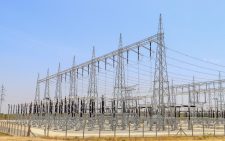Private pension funds face ‘bleak future’, say experts

The pension industry is staring at stiff competition with National Social Security Fund (NSSF) if a move to increase monthly retirement benefits from 200 to a minimum of 2,000 is implemented.
While the plan will provide a better retirement package to Kenyans in the formal sector, stakeholders are concerned that the government’s demand for higher contributions could crowd out the private sector, with beneficiaries opting to stick to the first line of pension saving plans.
Under the new plan, it is mandatory for employers and workers to contribute to the social security kitty a total of up to 12 per cent of their monthly basic salary.
Considering that workers are facing decreased salaries amid rising cost of living, the number of employees capable of contributing to a separate private pension scheme will consequently decline.
Most companies currently have pension scheme arrangements where the staff can save at a particular rate while the employer contributes a similar amount to enable beneficiaries to afford a decent lifestyle in their old age.
Disposable incomes
“The increments would further reduce employees’ disposable incomes due to existing high personal income tax rates. The impact of the proposed NSSF increase will not only affect the pension industry but also the uptake of investment instruments such as shares and Treasury Bonds,” says Samson Osero, Human Resource consultant. This is set to hurt the revenue levels from the pension, which pension firms normally reserve to finance their activities such as investment while providing adequate cover to millions of Kenyans in retirement bracket.
According to the Retirement Benefits Authority (RBA), the pension assets dropped by Sh33 billion in the six months to last June caused by losses on government securities and equities on the back of tough economic conditions.
In a proposal last year, Federation of Kenya Employers (FKE) Executive Director Jacqueline Mugo said the proposal to increase NSFF monthly contribution to six per cent from the current Sh200 flat rate will hit both employers and workers who are already burdened by high cost of living.
The federation instead wanted the 6 per cent increase to be spread out to ease pain. “FKE proposes that the 6 per cent enhancement of NSSF be implemented over a five-year period to enable employers and employees to adjust to accommodate the new rates,” Mugo said in a statement.
The penetration of pension funds is already low, at 21 per cent, among the working population. Some of the reasons for the inadequacy of benefits include low and short contribution periods and leakages due to early withdrawals.
The low pension uptake, therefore, increases pressure on the working class, which in turn reduces investments and savings. Social security was previously not a big concern to the majority due to communal lifestyle and the existence of extended families, especially in rural areas, which provided safety nets for retirees.
Social protection
But with the weakening of these social fabrics and emerging of new health conditions, policies have been shifting to broaden the social protection agenda, something that is forcing the government to mobilize more resources to bridge the demand.
There is also pending plans to revise upwards National Hospital Insurance Fund (NHIF) rates. NSSF maintains that the country’s dependency ratio is too high and that the increased savings deductions will bring more revenue to cater for retirement benefits.












